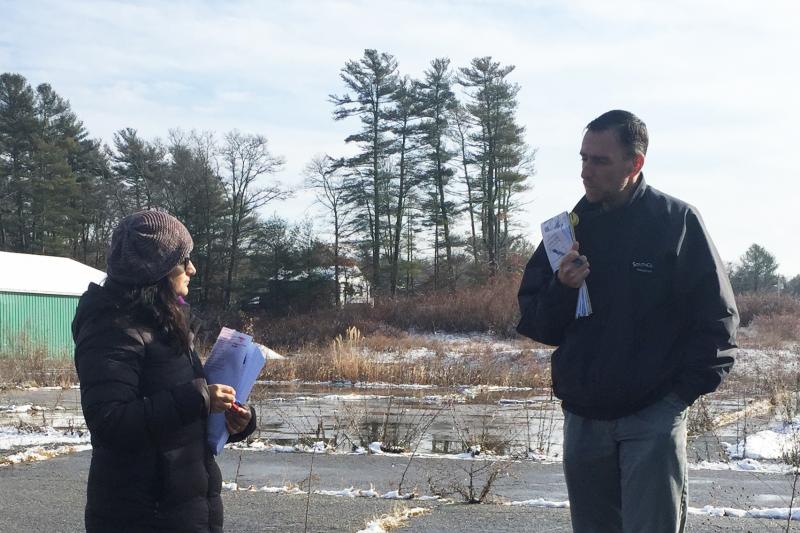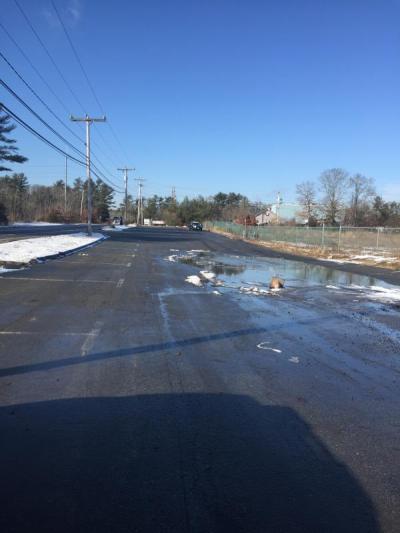Developer gets state feedback on Rochester Crossroads
ROCHESTER — Space wise, a site by Zero Waste and Convanta SEMASS may make the most sense for a 208-unit housing complex. But this week, Purvi Patel stood up for the complex’s future residents, asking how the developers will minimize the impact of nearby waste and recycling facilities on residents.
Patel’s agency, the Massachusetts Environmental Policy Act Office, works to avoid, minimize or mitigate the environmental impacts of projects. Dartmouth’s Steen Realty and Development Corporation is currently in the permitting process for the 208-unit Rochester Crossroads, a mixed use housing and commercial complex, proposed for the site of a former nursery at the intersection of Interstate 495, and Routes 58 and 28.
The project needed review not because it ran afoul of the state, but because it will expand an existing impervious surface by 5 or more acres. It is planned with a commercial development at front and possibly at rear, four 4-story apartment buildings, and a community center.
Phil Cordeiro, with Allen and Major Associates, explained in response to Patel’s concerns that Rochester has a “need for reasonable cost housing,” and that residents found the site the “most appropriate place.”
As for waste and recycling companies, Covanta SEMASS and Zero Waste, Cordeiro said he has had “great communication with them” about noise, odors and truck schedules.
Traffic analyst Jeff Bandini said the development is near eight intersections and will operate at a reasonable service level.
His goal is to minimize the number of single car trips by promoting carpooling or a bus stop that will be created on Route 28.
Patel asked if there would be a sidewalk along Route 28. Bandini said that there would not, only one to the bus stop.
The reviewer said the Department of Transportation will likely ask about a sidewalk.
Patel asked for a narrative explaining how the planners have worked with Zero Waste and Covanta SEMASS. She observed that the developers have a good verbal explanation of the process, but not a more formal one.
She said her primary concerns for the development would be noise, air quality and the visuals for residents, adding that Rochester residents may have approved the site, but likely won’t have to live on it.
Cordeiro explained that the “traffic won’t be concerning to some residents, who want the road here.”
He also said that Zero Waste volunteered to change its evening truck traffic in its revised permit.
Rochester Town Planner Steven Starrett asked if that would impact their operation, and Patel responded it would, to mitigate the impact, or respond to a complaint.
Patel also asked about water at the development, which plans to borrow 45,000 of the 50,000 gallons per day that Wareham supplies to Rochester. The latter currently uses around 5,000 gallons a day, meaning the loan would exhaust the terms of the agreement.
Cordeiro responded that Steen Realty has already tweaked its usage numbers, and that Rochester is negotiating with Wareham, which has surplus water that it might be able to sell.
After the review, Rochester Crossroads will get a certificate on Feb. 7 and continue the permitting process with other state agencies. On a local level, Steen has presented to the Conservation Commission and has a site walk scheduled with Planning Board for the end of January.
Residents with comments on the project may email purvi.patel@mass.gov with written comments until Jan. 28.
















